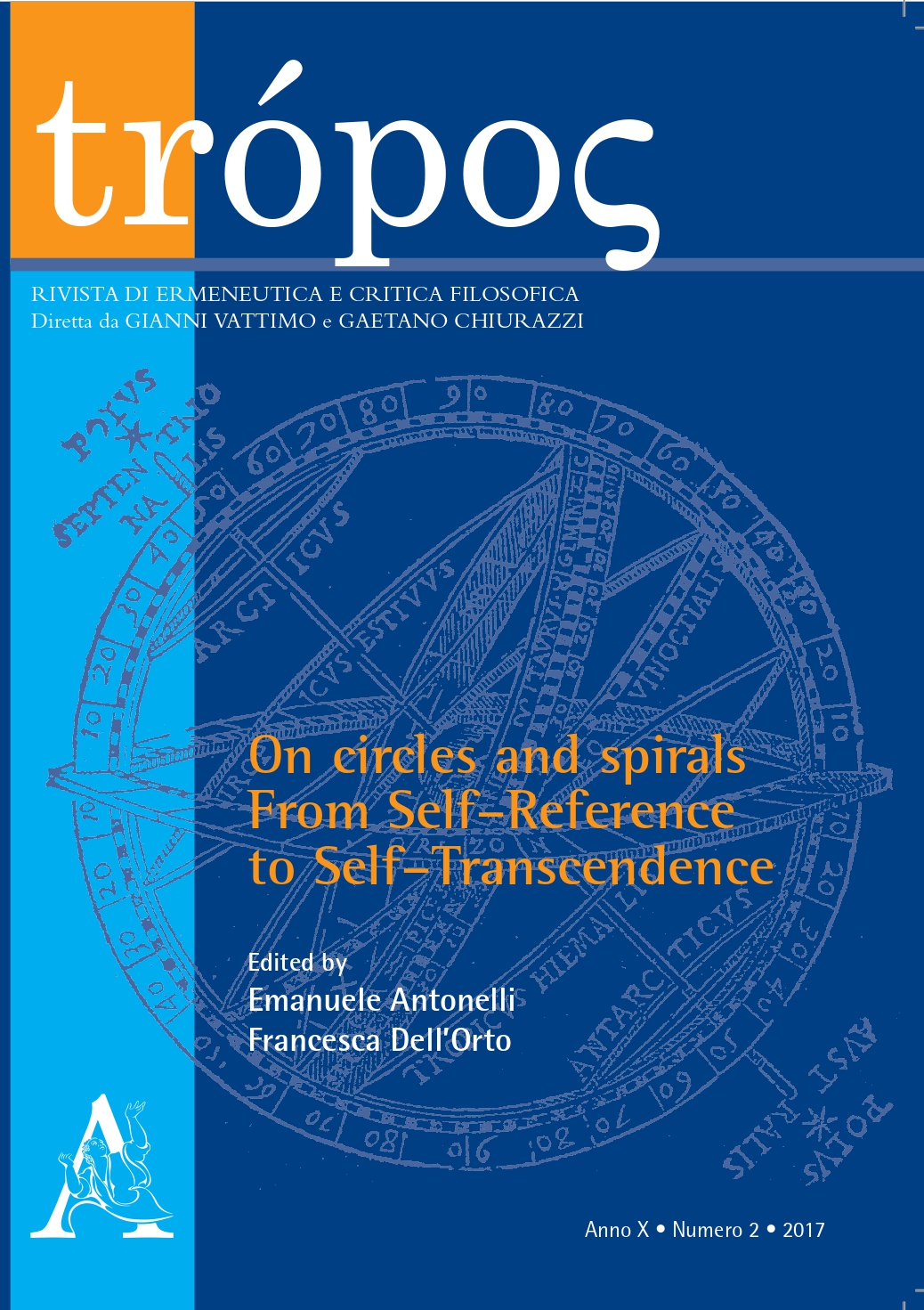Dentro di sé, fuori da sé
Keywords:
Anthropology, Freedom, Logic, Psychology, Social RelationshipsAbstract
Inside oneself, out of oneself. Staging “dialogue” with and between philosophers and psychologists, I let emerge the thesis that, in its original condition, man lives a sort of communion with the world, given by a substantial affinity between inside and outside. This original condition of man rests both on undifferentiated impulses and on the faculties of feeling and emotion. In particular, the primary impulses find a world already organized and can refer to it without succumbing immediately as they possess and are governed by an autonomous principle, that of economics. Feelings and emotions, on the other hand, can regain agreement with the world only after a break in the balance between us and the external reality. At this point, the new relationship will be internalized and, in some way, will become more aware. Otherwise, in everyday life, we tend to bring back the relationship with the world to a balance, based on the routinization and on the average of our usual energy consumption. Therefore, in multiple ways there arises some form of stabilization and conceptualization of our general and overall disposition towards life and the world.


